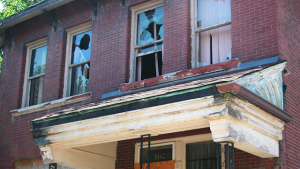 La ecología humana está configurada tanto por el ambiente natural como por la cultura y la sociedad. En lo que se refiere a lo natural, el Perú es espectacular por su variedad, su belleza y grandiosidad, así como por la generosidad de sus recursos. Aunque hay muchas iniciativas para cuidarlo, el trabajo sigue siendo inmenso.
La ecología humana está configurada tanto por el ambiente natural como por la cultura y la sociedad. En lo que se refiere a lo natural, el Perú es espectacular por su variedad, su belleza y grandiosidad, así como por la generosidad de sus recursos. Aunque hay muchas iniciativas para cuidarlo, el trabajo sigue siendo inmenso.
En la dimensión cultural y social el reto es más complejo, pues aún no tenemos la noción ni la urgencia de cuidar ese ambiente y evitar que sea tóxico. Y es que la cultura es donde se cultivan, portan y comunican los valores; la que va nutriendo y formando nuestra alma y conciencia nacional. Lo que nuestra cultura reconoce y propone como valioso lo asimilamos en nuestra manera de ver la realidad y cómo actuamos.
Es proverbial que en el Perú nos preciemos de ‘ser vivos’ y que no haya nada más vergonzoso para un ‘macho peruano que se respete’, que ser agarrado de ‘lorna’. Con ese criterio, sin embargo, no podemos construir ni valores cívicos ni confianza.
Cuando el refrán popular insulta a los bomberos por arriesgar su vida sin que les paguen por ello, nos educamos en que la generosidad y el altruismo son despreciables. Por eso no sorprende que, en plenas fiestas patrias, una artista haya hecho gala de su ignorancia y desprecio por Alfonso Ugarte y Francisco Bolognesi justamente porque dieron un paso adelante en defensa de la patria.
Que con sus errores se haya desacreditado –reforzando el injusto estereotipo de los artistas como apasionados y creativos, pero ni responsables ni pensantes– es casual. Lo sintomático es que burlarse de la valentía y la generosidad de quien no busca el provecho propio, encuentra eco y aplauso. Esto es un rasgo de algo más hondo que está enfermo y decadente, y que se debe diagnosticar y sanar.
Otro refrán dice que “autoridad que no abusa, se desprestigia” y hay en nuestra patria políticos que se ufanan de repetirlo. Asumimos que el político abusa y roba, y nos sorprenderíamos de lo contrario. Y como la política, y a veces también los negocios, son corruptos, se los dejamos a los corruptos.
Pero la cultura nacional es filtrada y matizada por la cultura local y finalmente la cultura propia de cada familia. En la vida cotidiana de la familia se comentan y transmiten, se critican y descalifican o confirman los valores y pseudovalores de nuestra cultura nacional. En lo mucho que debe sanar del alma nacional, la familia tiene un papel fundamental.




